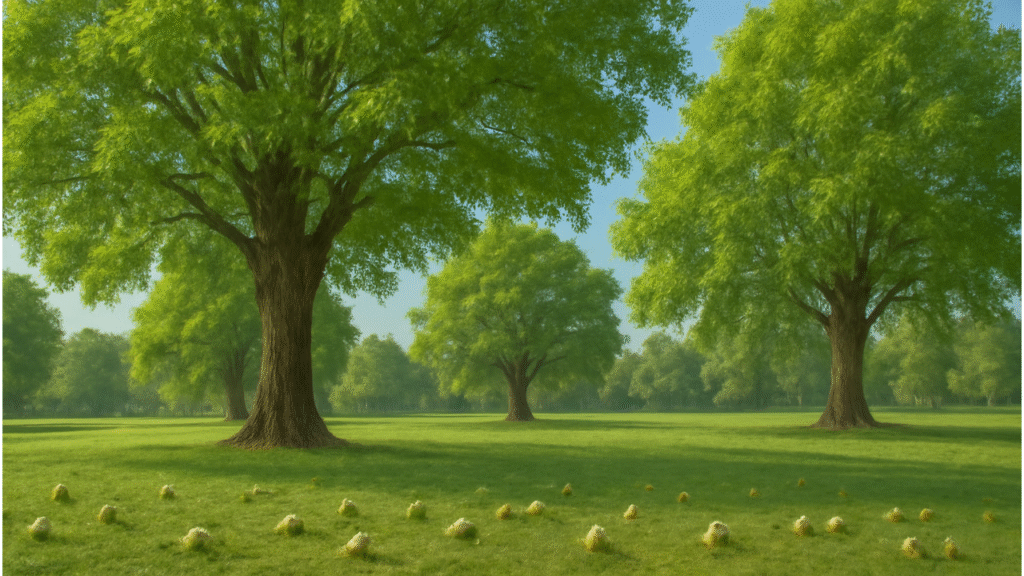
Who Buys Hickory Trees? A Guide to Selling Hickory Trees for Profit
Are you sitting on a property with mature hickory trees, wondering, “Who buys hickory trees?” 🤔 Whether you’re looking to make extra cash or clear your land, selling hickory trees can be a profitable opportunity. But navigating the process and finding the right buyers can be tricky.
In this guide, we’ll show you exactly who buys hickory trees and how you can sell them for maximum profit. From timber mills to private buyers, there are various markets eager to pay top dollar for these strong, versatile trees. By the end, you’ll have the knowledge to make an informed decision and turn your hickory trees into a valuable asset.
Ready to discover how to profit from your hickory trees? Keep reading! 👇
Table of Contents
Toggle🌳 Who Buys Hickory Trees? 🌳
If you have hickory trees on your property, you’re probably wondering who’s interested in buying them and how to find the right buyers. Hickory trees are valuable for a variety of reasons, and several industries are eager to purchase them. Let’s break it down and find out who buys hickory trees and why they’re willing to pay for them. 💰

🪓 Timber Mills: The Big Buyers 🪓
Timber mills are one of the primary buyers of hickory trees. They are especially interested in hickory for its strong, dense wood, which is used in high-demand products like furniture, flooring, and tools. Because hickory wood is known for its durability and resistance to wear, it’s a highly sought-after material in the timber industry.
🌳 Why Timber Mills Buy Hickory Trees 🌳:
- Hickory wood is perfect for making furniture, tool handles, and flooring. 🪚
- The strong grain of hickory is ideal for products that require durability. 💪
- Timber mills pay well for large, mature hickory trees that are in good condition. 🌳

Tip: Contact local sawmills or timber buyers in your area to get an idea of their pricing. It’s often best to reach out directly for a quote! 📞
🛋️ Furniture Manufacturers: Crafting Durable Pieces 🛋️
Hickory’s unique properties make it an excellent choice for making durable furniture. Furniture manufacturers love the hardwood because it’s not only strong but also has an attractive appearance with its light color and distinctive grain.

🌿 Why Furniture Makers Buy Hickory Trees 🌿:
- Hickory is strong, making it great for heavy-duty furniture like chairs and tables. 🪑
- Its beautiful, unique grain pattern adds aesthetic value to furniture. 🎨
- The wood can be used in both traditional and modern furniture designs. 🛋️
Tip: If you have access to large, straight hickory trees, furniture manufacturers may be willing to pay a premium for your trees. 💸
🌿 Landscaping Companies: Using Hickory in Outdoor Projects 🌿
Landscaping companies are often on the lookout for hickory trees to use in outdoor projects. They may purchase mature trees to use as shade trees or as part of urban landscaping designs. Additionally, hickory is sometimes sought after for its striking appearance and resistance to pests, making it a great addition to landscapes.
🌳 Why Landscaping Companies Buy Hickory Trees 🌳:
- Hickory trees provide strong shade, which is valuable in landscaping. 🌞
- The tree’s appearance makes it attractive for landscaping designs. 🌺
- Hickory trees are resistant to pests, which can make them ideal for certain climates. 🐜
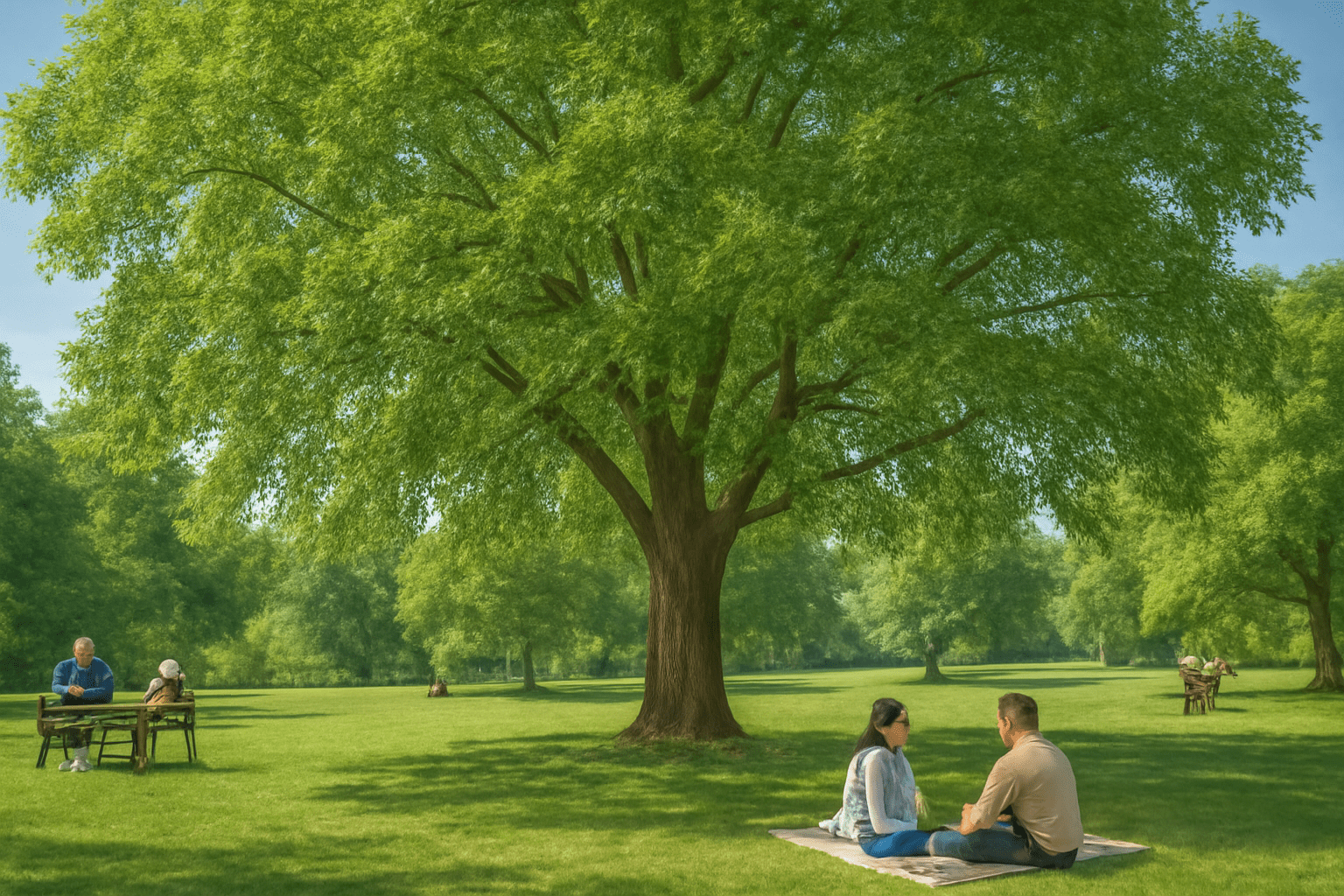
Tip: If your trees are in an urban area or near landscaping projects, reaching out to local landscaping businesses may open doors to potential buyers. 🏙️
🌰 The Nut Industry: Harvesting Hickory Nuts 🌰
Did you know that hickory trees aren’t just valued for their wood? The nuts produced by hickory trees have a market too! The nut industry, including businesses that make snacks or oils, often purchases hickory nuts for their high nutritional value and rich flavor.
🧑🍳 Why the Nut Industry Buys Hickory Nuts 🧑🍳:
- Hickory nuts are rich in flavor and used in premium snacks. 🍪
- The oil from hickory nuts is often used in specialty food products. 🧴
- Nut harvesters may buy hickory trees to collect nuts for food production. 🌰
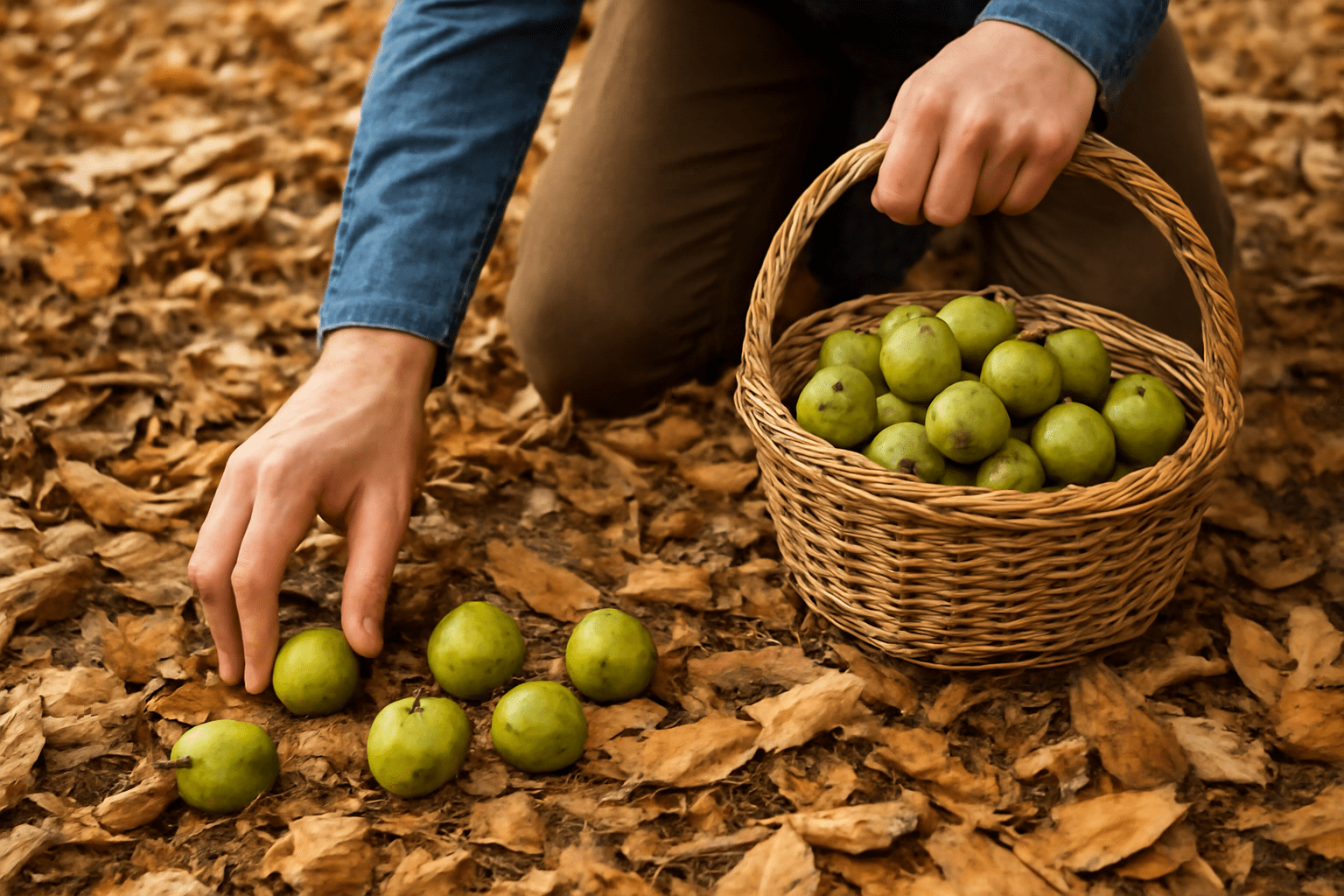
Tip: If your hickory tree produces nuts, contact nut buyers or food manufacturers to learn how you can sell them directly. 📦
👨🌾 Private Buyers and Hobbyists: A Personal Touch 👨🌾
Private buyers or hobbyists may also be interested in buying hickory trees for personal use. Whether they’re looking for firewood, crafting materials, or even decorative trees for their garden, hickory trees can be quite valuable to them.
🌳 Why Private Buyers Buy Hickory Trees 🌳:
- They may want the wood for firewood or DIY projects. 🔨
- Hickory trees are sometimes purchased for ornamental purposes in gardens. 🌷
- Hobbyists may enjoy the challenge of maintaining a hickory tree on their property. 🏡
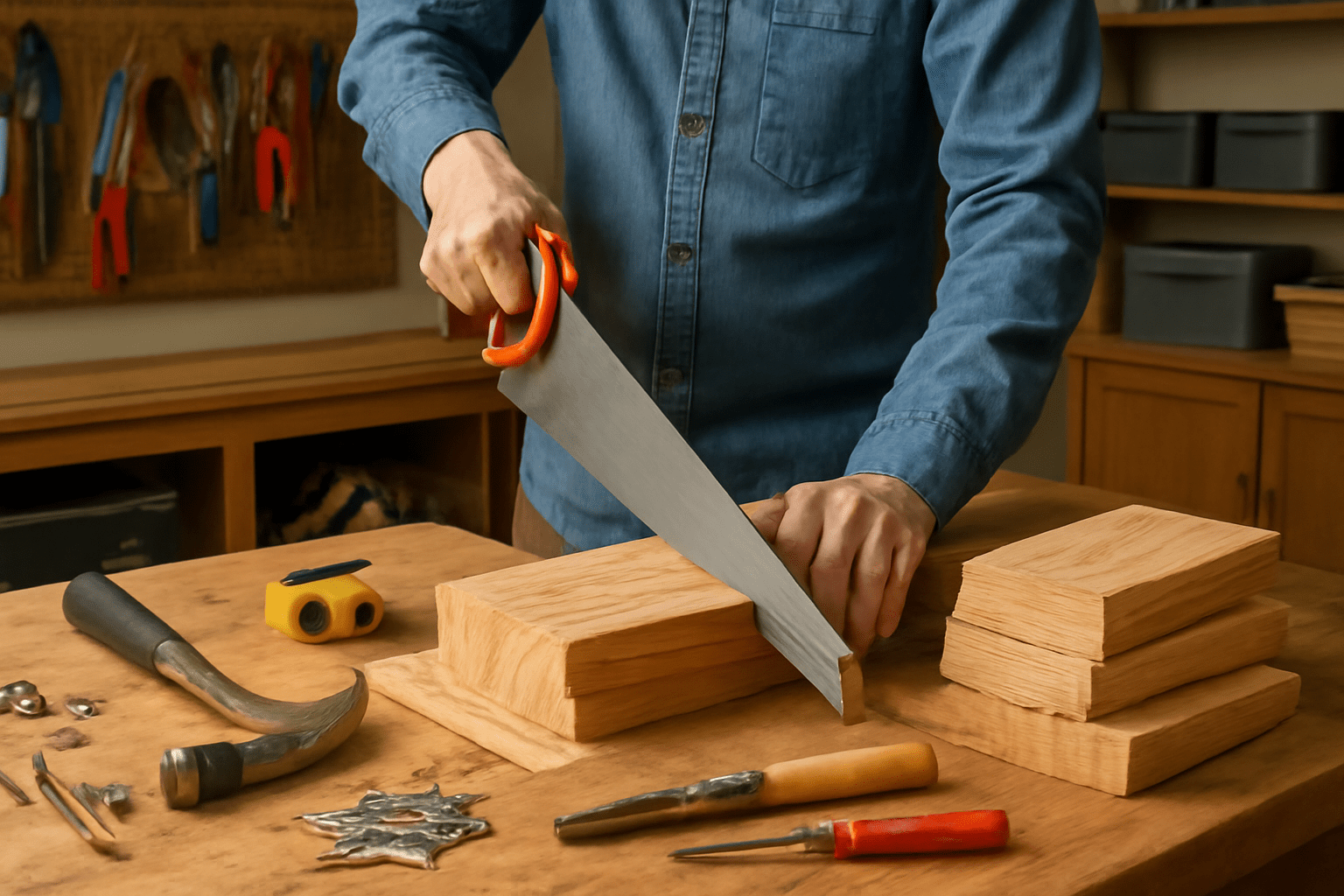
Tip: Advertise locally on platforms like Craigslist or community boards to attract private buyers who are looking for a personal project or firewood. 📣
📌 In Summary: Who Buys Hickory Trees? 📌
To recap, hickory trees can be sold to a variety of buyers, including:
- Timber mills for lumber and furniture manufacturing 🛠️
- Furniture makers who value the wood’s durability and aesthetic appeal 🛋️
- Landscaping companies seeking attractive, strong trees for outdoor spaces 🌿
- Nut collectors and the food industry interested in hickory nuts 🌰
- Private buyers for personal use, firewood, or decoration 👨🌾
By identifying the right market for your hickory trees, you can maximize your profit and ensure you’re selling to the most appropriate buyer. Reach out to these industries directly or list your trees on online platforms to start selling today! 🌳💸
🌳 How to Identify Valuable Hickory Trees 🌳
Before you start selling your hickory trees, it’s essential to know how to identify which ones are most valuable. Not all hickory trees are created equal, and certain factors can significantly impact the price you get. Let’s dive into how to assess the value of your trees and make sure you’re selling the ones that will bring in the most profit. 💰
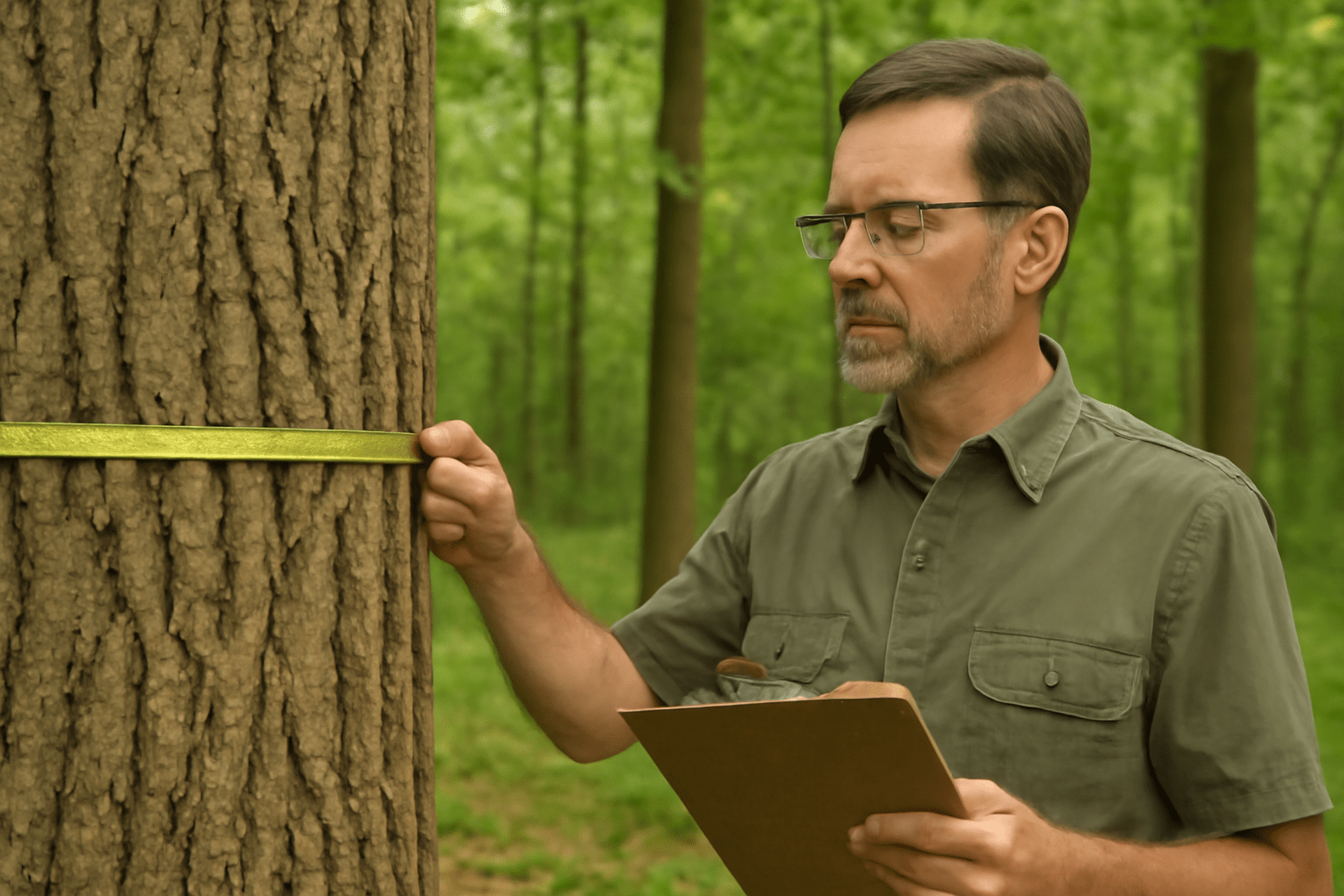
🪓 Key Characteristics of Marketable Hickory Trees 🪓
When buyers look for hickory trees, they have specific qualities in mind. Here are the key traits to look out for:
🌱 Size and Maturity 🌱
- Ideal Diameter: Hickory trees with a diameter of at least 12-24 inches (30-60 cm) are considered valuable for timber. Larger trees yield more wood, which increases their worth. 📏
- Height: Taller trees are more desirable because they provide longer logs, which are more valuable for furniture and flooring production. 🌲
- Age: Typically, hickory trees need to be around 30-40 years old to reach maturity and provide the best quality wood. Older trees tend to have denser and more stable wood. ⏳
🌳 Tree Health and Condition 🌳
- No Diseases or Pests: Buyers want healthy trees. If your hickory trees are free from diseases like cankers or infestations like borers, they’ll be worth more. 🦠
- Straight Trunk: A straight trunk without major bends or damage is more valuable. This is especially important for sawmills and furniture makers who need consistent wood grain. 🪚
- Minimal Damage: Ensure the tree has few scars or broken limbs. The more perfect the trunk, the more money you’ll make. 💸
Tip: Inspect the tree carefully for signs of rot, fungus, or pest damage. If the tree is compromised, its value can significantly drop. ⚠️
🌿 Species of Hickory Trees 🌿
There are several species of hickory trees, but not all are equally valuable. Here’s a quick guide to the most desirable ones:
🌳 Shagbark Hickory 🌳
- Why It’s Valuable: Shagbark hickory is one of the most prized species for timber. It has a beautiful grain and is commonly used for furniture and flooring. 🪑
- Wood Characteristics: It’s tough, dense, and highly resistant to wear, making it ideal for durable products. 🛠️
🌳 Shellbark Hickory 🌳
- Why It’s Valuable: Known for its larger size and excellent wood quality, shellbark hickory is a favorite among furniture makers. 🛋️
- Wood Characteristics: It produces a hard, fine-grained wood, ideal for fine woodworking and cabinetry. 🪚
🌳 Pignut Hickory 🌳
- Why It’s Valuable: While not as prized as the Shagbark or Shellbark, pignut hickory is still sought after for its strong, heavy wood. 🔨
- Wood Characteristics: Pignut hickory has a dense, tough wood that’s great for tool handles and firewood. 🔥
Tip: Knowing the species of your hickory tree helps you determine its value. Shagbark and Shellbark hickories often fetch the highest prices, so be sure to accurately identify the species when contacting potential buyers. 📞
🪚 How to Measure the Value of Your Tree 📏
Once you’ve identified a healthy and valuable tree, it’s time to measure it. Here’s how to assess the value:
📐 Measuring the Diameter 📐
Use a diameter tape (or a regular measuring tape) to measure the tree at 4.5 feet from the ground (this is called the “DBH” or “Diameter at Breast Height”). 📏
- Measure the circumference of the tree, then divide that number by pi (3.14) to get the diameter. 🔢
🌲 Estimating the Height 🌲
Use a measuring stick or a basic height estimator tool to figure out the tree’s height. Most buyers will want a rough estimate of height to assess how much usable wood you have. 🌳
- As a general rule, the taller the tree, the more valuable it is, especially for timber mills and furniture makers. 📏
🌟 Checking the Wood Quality 🌟
Wood quality plays a crucial role in the value of a hickory tree. Look for:
- Straightness: The more straight the trunk, the better. ➖
- Consistency of Grain: Straight, even grain is ideal. 🌿
- Clear Wood: Fewer knots and blemishes mean better quality and higher price. 💲
Tip: Consider hiring a professional to measure the tree and evaluate its quality if you’re unsure. Forestry experts can provide a more accurate assessment, helping you avoid undervaluing your trees. 🌳
📌 In Summary: Identifying a Valuable Hickory Tree 📌
To sum up, a valuable hickory tree should be:
- Large and mature, ideally with a diameter of 12 inches or more. 🌳
- Healthy, free from disease or damage, and with a straight trunk. 🌿
- The right species, such as Shagbark or Shellbark hickory, known for their superior wood quality. 🪓
- Properly measured, with accurate height and diameter calculations to help determine value. 📏
By focusing on these characteristics, you can ensure you’re selling only the most valuable hickory trees, maximizing your profits. Happy tree selling! 🌳💸
🌍 Where to Sell Hickory Trees 🌍
Now that you know how to identify valuable hickory trees, it’s time to find the right buyers. Selling hickory trees is all about knowing where to look for the right market. Whether you’re selling timber, firewood, or nuts, there are multiple options to connect with buyers. Let’s explore the best places to sell your hickory trees and how to get the best price. 💸
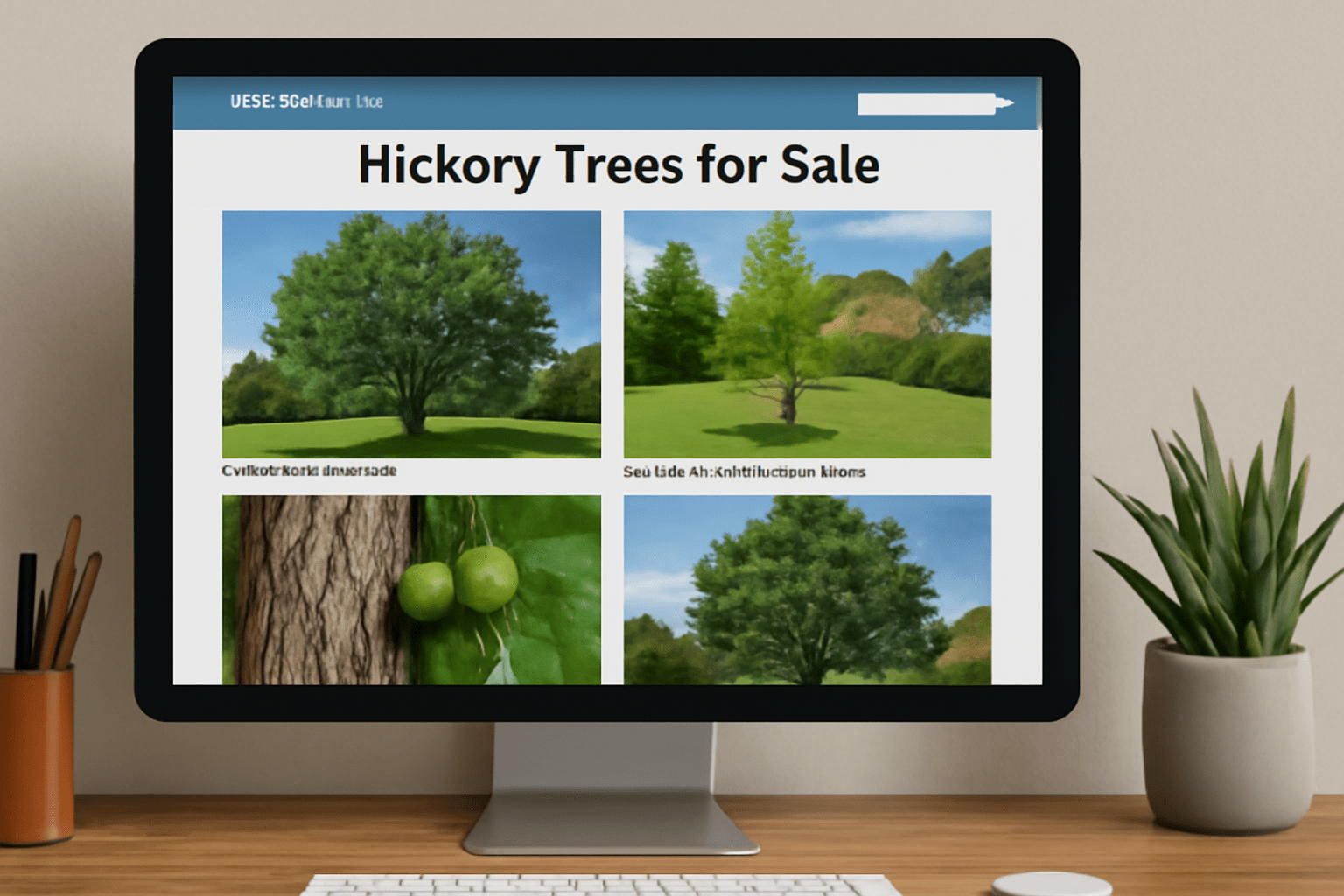
🪓 Timber Mills: The Go-To Option for Lumber 🪓
Timber mills are one of the most reliable and consistent buyers for hickory trees. They specialize in processing trees into lumber and other wood products, so they’re always looking for quality timber.
🌳 How to Sell to Timber Mills 🌳
- Research Local Mills: Start by researching timber mills in your area. Many mills specialize in specific types of wood, so look for those that handle hardwoods like hickory. 🏭
- Contact Them Directly: Reach out to timber mills with details about your trees (size, species, health). Some mills may even come to inspect and evaluate the trees. 📞
- Negotiate Prices: Timber prices can fluctuate, so make sure to get multiple quotes before committing. Don’t hesitate to negotiate for the best price! 💬
Tip: Find mills that specifically deal with hickory trees, as they will pay a premium for high-quality hickory wood. 💰
🛋️ Furniture Manufacturers: High Demand for Quality Wood 🛋️
If you have a large, straight, and high-quality hickory tree, furniture manufacturers may be interested. These businesses rely on durable, attractive hardwoods like hickory to make products ranging from tables to cabinets.
🌿 How to Sell to Furniture Makers 🌿
- Reach Out to Local Furniture Makers: Look for furniture manufacturers in your region who specialize in hardwood pieces. Send them information about your hickory trees and the wood’s potential use. 🪑
- Highlight Wood Quality: Furniture makers want the best quality wood. Be sure to emphasize the strength, durability, and unique grain patterns of your hickory trees when reaching out. 🌟
Tip: If your tree produces particularly beautiful, blemish-free wood, it may be worth more to furniture makers than to timber mills. 💎
🌳 Landscaping Companies: Selling Live Trees 🌳
Landscaping companies may be interested in buying live hickory trees for urban and rural development projects. These companies use mature trees for landscaping parks, streets, and other outdoor spaces.
🌿 How to Sell to Landscaping Companies 🌿
- Contact Local Landscaping Firms: Reach out to companies that specialize in urban planning and landscape design. They may want to plant mature hickory trees in various locations. 🏙️
- Offer Transplanting Services: Some landscaping companies may need assistance transplanting large trees. Consider offering a service to safely dig up and transport the tree to the buyer. 🌱
Tip: Landscaping companies tend to favor straight, healthy trees with minimal damage, so make sure your hickory trees are in top condition when you reach out. 🌳
🌰 Nut Collectors and Food Manufacturers: Selling Hickory Nuts 🌰
If your hickory trees produce nuts, you have an additional market: nut collectors and food manufacturers. Hickory nuts are prized for their rich flavor and nutritional value.
🍽️ How to Sell Hickory Nuts 🍽️
- Contact Nut Collectors: Nut collectors or small businesses that sell gourmet snacks often buy hickory nuts. Look for buyers who are interested in harvesting and processing the nuts. 🥜
- Partner with Food Manufacturers: Reach out to companies that produce nut-based products, such as snack bars or oils, and see if they buy hickory nuts in bulk. 🏭
Tip: If you plan to sell hickory nuts, ensure that they are harvested properly and are of good quality. Nut buyers usually prefer nuts with minimal damage. 🛒
🛠️ Online Marketplaces and Platforms 🛠️
In today’s digital world, online platforms make it easier than ever to connect with potential buyers for hickory trees. Whether you’re selling whole trees, firewood, or nuts, there are various websites where you can list your items.
🌐 Popular Online Platforms for Selling Hickory Trees 🌐
- Craigslist: List your trees locally on Craigslist, where you can reach buyers in your area who may be looking for firewood, live trees, or timber. 📍
- eBay: For smaller quantities of firewood or nuts, eBay can be a great platform to reach a broader audience. 💻
- Forestry Forums: There are specialized forums where timber buyers, woodworkers, and hobbyists gather. Consider listing your trees on these platforms for more targeted buyers. 🪓
Tip: Include clear, high-quality photos of the trees and their measurements when listing online to attract more buyers. 📸
👨🌾 Private Buyers: Selling Directly to Individuals 👨🌾
Private buyers, including homeowners, hobbyists, and collectors, may also be interested in purchasing hickory trees. They might want the trees for firewood, ornamental purposes, or personal projects.
🏡 How to Sell to Private Buyers 🏡
- Advertise Locally: Use local newspapers, community bulletin boards, or social media to advertise your trees. Platforms like Facebook Marketplace are great for reaching local buyers. 📱
- Offer Firewood or Decorative Trees: Some private buyers may be interested in cutting down the tree for firewood or using it for ornamental purposes in their garden. 🌻
Tip: Private buyers often prefer buying directly from you, so make sure to clearly communicate the tree’s size, condition, and price. 💬
📌 In Summary: Where to Sell Hickory Trees 📌
There are several places you can sell your hickory trees, each with its own benefits:
- Timber mills for high-quality lumber 🪓
- Furniture manufacturers looking for durable hardwood 🛋️
- Landscaping companies interested in mature trees 🌳
- Nut collectors and food manufacturers for hickory nuts 🌰
- Online platforms like Craigslist or eBay 🛠️
- Private buyers looking for firewood or ornamental trees 👨🌾
By exploring these options, you’ll be able to connect with the right buyers and sell your hickory trees for a great price. Happy selling! 🌳💸
💸 How to Sell Hickory Trees for Maximum Profit 💸
Once you’ve identified your valuable hickory trees and found potential buyers, the next step is to maximize your profit. Selling hickory trees isn’t just about finding any buyer — it’s about making sure you get the highest possible price for your trees. In this section, we’ll walk you through how to prepare your trees for sale, negotiate the best deal, and ensure that you’re selling for the best value. Let’s dive in! 🌳💰
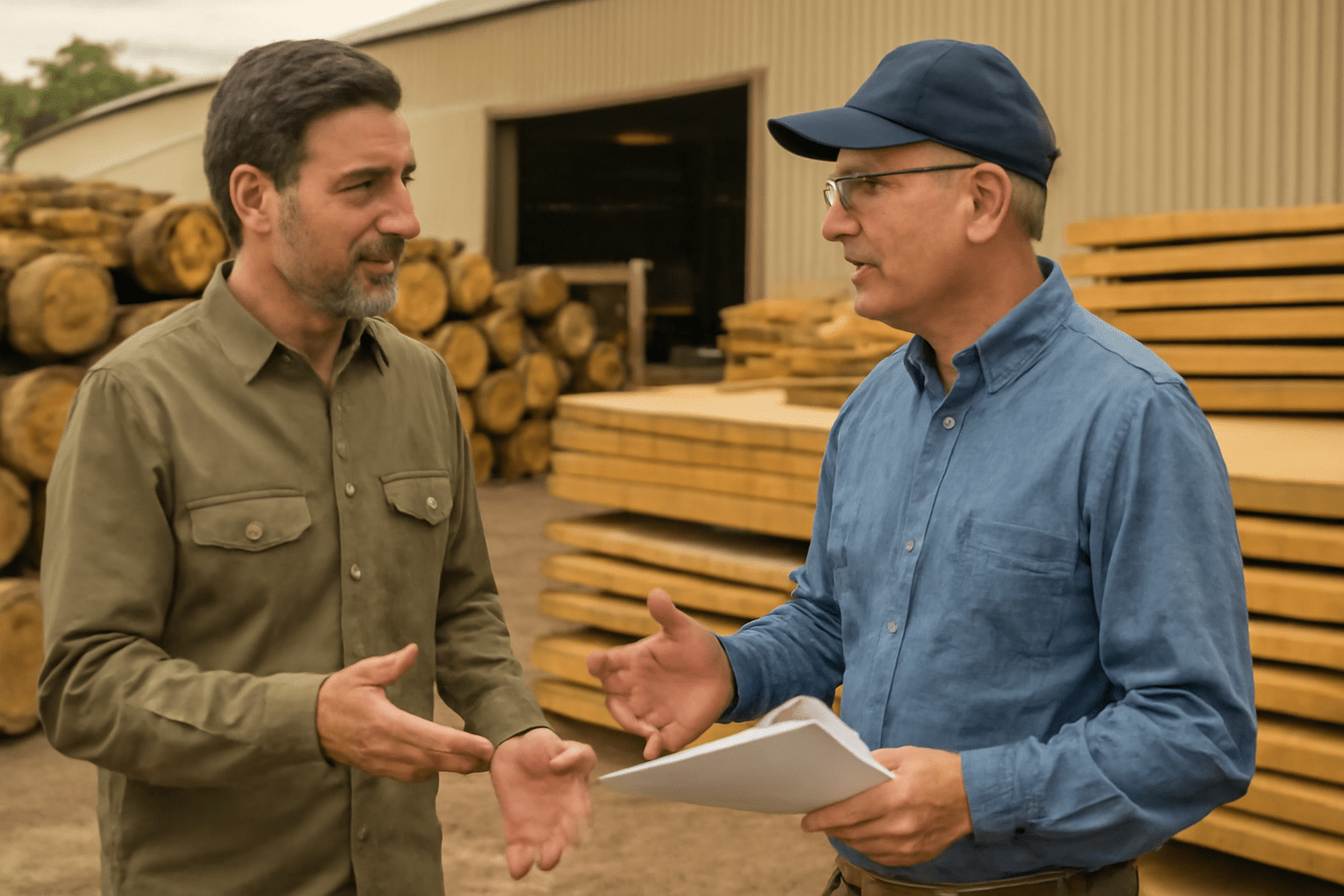
🪓 Preparing the Tree for Sale 🪓
Before you can sell your hickory trees, you need to ensure they are in the best possible condition for buyers. Here are a few steps to prepare your trees for sale:
✂️ Prune and Clean the Tree ✂️
- Prune Dead Branches: Cut off any dead or damaged branches. This makes the tree appear healthier and more valuable to buyers. 🌿
- Remove Weeds and Debris: Clear any weeds or debris around the base of the tree. A clean and well-maintained tree will impress potential buyers. 🍂
- Check for Pests: Inspect for pests like borers or disease. If your tree has pests, you may need to treat it before selling to avoid reducing its value. 🦠
🚜 Ensure Accessibility 🚜
- Make the Tree Accessible for Harvesting: If you’re selling the tree for timber, ensure that it’s easy to access. Clear the surrounding area to allow trucks or equipment to reach the tree. 🏞️
- Plan for Safe Removal: If the tree is large, plan for its removal carefully. Work with professionals who can safely remove and transport the tree without damaging the wood. 🪓
Tip: The better prepared your tree is for sale, the easier it will be to negotiate a higher price. Taking these extra steps will make the selling process smoother and more profitable. 💸
💬 Negotiating the Best Price 💬
Negotiating is key to selling hickory trees for maximum profit. Here’s how to ensure you’re getting the best deal:
📊 Research Market Prices 📊
- Understand Current Timber Prices: Before contacting potential buyers, do some research to understand the going price for hickory timber in your area. This will help you avoid undervaluing your trees. 🏷️
- Know Your Tree’s Worth: Use the measurements you’ve taken (height, diameter, species) to determine the potential value of your hickory tree. Consider consulting with an expert if you’re unsure. 📏
💰 Get Multiple Quotes 💰
- Reach Out to Multiple Buyers: Don’t settle for the first offer. Contact multiple buyers, such as timber mills, furniture makers, and landscaping companies, to compare offers. 📞
- Present the Value of Your Tree: When negotiating, highlight the quality of your hickory trees. Emphasize the health of the tree, its size, and its potential use in their projects. 🌳
🚶♂️ Be Ready to Walk Away 🚶♂️
- Don’t Accept the First Offer: If a buyer’s offer is lower than you expected, be ready to walk away. Sometimes, this will prompt them to increase their offer, especially if they know you have other interested buyers. 🚪
Tip: Keep calm and professional during negotiations. The more informed you are about your tree’s value, the more confident you’ll feel when negotiating a fair price. 💼
🪚 Working with a Forestry Broker 🪚
If you want to avoid the hassle of negotiating with multiple buyers, a forestry broker can help you get the best price. These professionals specialize in selling trees and can connect you with the right buyers.
🤝 How a Broker Can Help 🤝
- Expert Knowledge: Forestry brokers are experts in the market and can help you price your trees accurately, ensuring you don’t undervalue them. 🧠
- Connections to High-Paying Buyers: Brokers have established relationships with timber mills, furniture manufacturers, and other buyers who are willing to pay top dollar for quality hickory trees. 💸
- Negotiation Power: Brokers can negotiate on your behalf, getting you a better deal than if you were handling the sale yourself. 🤝
💵 Broker Fees 💵
- What to Expect: Forestry brokers typically charge a commission, usually between 5-15% of the sale price. While this may seem like a lot, their expertise and connections often result in a higher sale price, making it worthwhile. 📈
- Is It Worth It?: If you’re selling large quantities of trees or a particularly valuable hickory tree, working with a broker can be a great investment. For smaller transactions, you may prefer to negotiate directly. 💼
Tip: Always clarify the broker’s fees upfront and make sure you’re comfortable with their commission before proceeding. 📜
🌿 Selling Hickory Nuts for Extra Profit 🌰
If your hickory trees produce nuts, don’t miss the opportunity to sell them alongside the wood. Hickory nuts are in demand for their rich, buttery flavor and nutritional value.
🌰 Harvesting and Selling Hickory Nuts 🌰
- Proper Harvesting: Wait until the nuts are ripe before harvesting. They should be harvested in late fall, once the husks begin to split open. 🍂
- Sell to Nut Collectors or Food Manufacturers: Reach out to local nut collectors, snack companies, or gourmet food manufacturers who may be interested in purchasing your hickory nuts in bulk. 🥜
Tip: If you plan to sell hickory nuts, be sure they are clean and free of damage. High-quality nuts will fetch a higher price. 💵
📌 In Summary: How to Sell Hickory Trees for Maximum Profit 📌
To maximize your profit from selling hickory trees:
- Prepare the tree by pruning, removing debris, and ensuring accessibility for transport. 🌳
- Negotiate smartly by researching market prices, getting multiple quotes, and considering working with a broker. 💸
- Consider selling hickory nuts alongside the timber for extra profit. 🌰
By following these tips, you can ensure that you’re getting the best price for your hickory trees and turning them into a valuable asset. Happy selling! 🌳💸
🌿 Additional Tips for Selling Hickory Trees 🌿
Now that you know how to identify, prepare, and negotiate the sale of your hickory trees, let’s cover some extra tips that can help you make the process even smoother and more profitable. These tips will help you avoid common pitfalls and ensure that you’re making the most of your hickory tree sale. Let’s dive in! 💡

🤝 Build Strong Relationships with Buyers 🤝
One of the best ways to ensure a successful and profitable sale is by building lasting relationships with your buyers. Whether you’re selling to timber mills, furniture makers, or private buyers, cultivating a good relationship can lead to repeat business and higher offers.
🌳 Why It Matters 🌳
- Future Opportunities: Buyers who trust you are more likely to come back for future sales, and may even refer you to others. 🔄
- Negotiation Leverage: When you have a solid relationship, buyers may be more willing to pay a higher price to ensure you continue selling to them. 💵
- Reliable Buyers: Trustworthy buyers are more likely to pay promptly and follow through on their offers. 📅
Tip: Be professional, courteous, and responsive to all buyer inquiries. Good communication can go a long way in securing better deals. 🗣️
📜 Understand the Legalities of Selling Trees 📜
When selling hickory trees, it’s important to understand the legal aspects of the transaction. Every state or country may have different regulations surrounding tree harvesting, transport, and sale. Make sure you’re complying with the relevant laws to avoid fines or legal complications.
⚖️ Things to Consider ⚖️
- Permits: Some regions may require a permit for cutting or selling certain types of trees, especially if they’re located in protected areas or conservation zones. 📝
- Harvesting Regulations: There may be specific rules regarding how trees should be harvested, including environmental considerations to prevent soil erosion or habitat destruction. 🌍
- Taxes: Selling hickory trees may be considered taxable income, so be sure to consult a tax professional to understand your obligations. 💼
Tip: Check with your local forestry department or government office to understand the regulations regarding tree harvesting and selling in your area. 📞
⚠️ Avoid Common Mistakes When Selling Hickory Trees ⚠️
Even experienced tree sellers can make mistakes that reduce their profit. Here are a few common mistakes to avoid:
🛑 Mistake 1: Underestimating the Tree’s Value 🛑
Many people underestimate the worth of their hickory trees. Ensure you’re pricing your trees based on current market trends, the tree’s size, health, and species. Research prices or consult a forestry expert before agreeing to a deal. 📊
🛑 Mistake 2: Selling Without Multiple Offers 🛑
Don’t settle for the first offer you receive. Always reach out to several buyers to compare prices and terms. This gives you a better chance of getting the highest price. 💬
🛑 Mistake 3: Not Properly Preparing the Tree 🛑
Selling a tree without properly preparing it for removal or transport can lead to delays, extra costs, and lower offers. Ensure the tree is accessible, well-maintained, and ready to be harvested when the buyer arrives. 🚜
Tip: Avoid rushing into a sale. Take your time to assess the tree’s value, check for other potential buyers, and make sure everything is in order before agreeing to a deal. 🕰️
🌱 Keep an Eye on the Market Trends 🌱
The price of timber, including hickory wood, can fluctuate based on various market factors. By staying informed about market trends, you can time your sale for maximum profit.
📉 What Affects Timber Prices? 📉
- Demand for Hardwood: Increased demand for hardwood in furniture and flooring industries can raise the price of hickory. 📈
- Economic Conditions: Economic downturns or construction booms can influence timber prices. 💼
- Natural Disasters: Natural events like storms or fires can impact the availability of hickory trees, affecting prices in your region. 🌪️
📲 How to Stay Informed 📲
- Industry Publications: Subscribe to forestry and timber industry magazines or newsletters to keep track of price trends. 📰
- Local Timber Auctions: Attend timber auctions to get an idea of current prices in your area. 🏞️
- Online Resources: Use websites or apps that track timber prices to stay updated on market conditions. 🌐
Tip: If you’re not in a rush to sell, it may be worth waiting for a time when the market is offering higher prices for hickory trees. ⏳
💼 Consider Selling in Bulk for Better Deals 💼
If you have multiple hickory trees for sale, selling them in bulk might help you get a better price per tree. Many timber mills and buyers prefer buying large quantities of trees, as it’s more cost-effective for them.
💪 How to Sell in Bulk 💪
- Offer a Discount: Buyers may be more willing to pay for multiple trees at once if you offer them a bulk discount. 💵
- Partner with Neighbors: If your neighbors have hickory trees to sell, consider partnering with them to sell as a group, offering a larger quantity to buyers. 🤝
Tip: Bulk sales can be a win-win for both you and the buyer, as it reduces their transportation and processing costs, while you get a better overall price. 📦
📌 In Summary: Additional Tips for Selling Hickory Trees 📌
To get the most out of selling your hickory trees:
- Build strong relationships with buyers for future sales 🤝
- Understand the legal aspects to avoid complications 📜
- Avoid common mistakes by properly pricing and preparing your trees ⚠️
- Stay informed about market trends to time your sale for maximum profit 🌱
- Consider selling in bulk for a better price 💼
By following these tips, you can ensure a smooth, profitable sale of your hickory trees and make the most out of your valuable assets. Happy selling! 🌳💸
🌟 Final Thoughts 🌟
Selling hickory trees can be a highly rewarding endeavor, whether you’re looking to clear your land, make extra income, or simply capitalize on the natural resources around you. By following the strategies outlined in this guide, from identifying valuable trees to negotiating the best price, you’ll be well on your way to maximizing your profit.

Remember, the key to success is knowing what makes a hickory tree valuable, preparing it properly for sale, and connecting with the right buyers—whether they’re timber mills, furniture makers, or private buyers. And with a little extra effort, like understanding market trends and avoiding common mistakes, you’ll be equipped to make smarter, more profitable decisions.
So, take action today—your hickory trees could be worth more than you think! 🌳💰 Happy selling!
❓ Frequently Asked Questions (FAQs) ❓
Who buys hickory trees?
Timber mills, furniture manufacturers, landscaping companies, and private buyers are the main buyers of hickory trees. Timber mills purchase them for lumber, while furniture makers value the wood for its durability and aesthetic qualities. Landscaping companies may also buy mature trees for outdoor projects, and private buyers often look for firewood or ornamental trees.
How do I determine the value of my hickory tree?
The value of your hickory tree depends on its size, species, health, and quality of the wood. Trees with a diameter of at least 12 inches and minimal defects will generally fetch a higher price. To get an accurate value, measure the tree’s diameter and height, and consult local timber mills or forestry experts.
Can I sell hickory trees for firewood?
Yes, hickory trees are great for firewood due to their high heat output and long burn time. If you have smaller, less desirable trees or damaged wood, selling them as firewood is a viable option. However, you won’t get as much per tree as you would selling for lumber or furniture.
What is the best time of year to sell hickory trees?
The best time to sell hickory trees is typically in late fall or winter, when the trees are dormant. During this period, the wood is drier, which makes it more valuable for milling or processing. Additionally, this is when timber mills and buyers are more active and ready to make deals.
How do I find buyers for hickory trees?
You can find buyers for hickory trees by contacting local timber mills, furniture manufacturers, and landscaping companies. You can also list your trees on online platforms like Craigslist or eBay, or attend forestry auctions to connect with potential buyers. Networking with forestry experts can also help you locate serious buyers.
Do I need a permit to sell hickory trees?
It depends on where you live and the size of the trees. In many areas, you may need a permit to cut down or harvest certain trees, especially if they’re in protected areas. Always check with local authorities or the forestry department to ensure you’re complying with local regulations before selling your hickory trees.
How do I prepare my hickory tree for sale?
To prepare your hickory tree for sale, prune any dead branches, clear the area around the base of the tree, and ensure it’s easily accessible for removal. If you’re selling for timber, make sure the tree is straight and healthy, with minimal damage. Proper preparation makes the tree more appealing to buyers and can increase its value.
Can I sell hickory nuts along with the tree?
Yes, if your hickory tree produces nuts, you can sell them separately or alongside the tree. Hickory nuts are valued in the food industry for their rich flavor and are used in snacks and oils. Be sure to harvest them when they’re ripe and market them to nut collectors or food manufacturers for additional profit.
